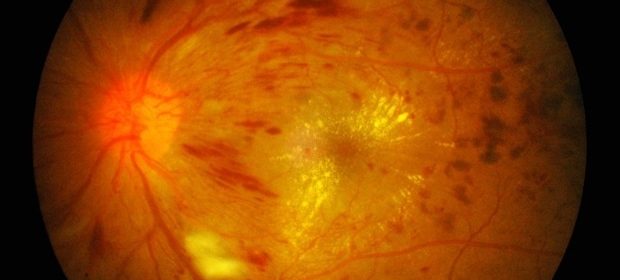Exonate announces successful completion of Phase Ib/IIa trial in diabetic macular oedema

Exonate Ltd. (the Company), an mRNA therapy company focused on treatments for diabetic complications, today announced its lead ophthalmology asset, EXN407, has achieved its prespecified endpoints in a phase Ib/IIa study. During the trial EXN407 met all safety and pharmacokinetic parameters and displayed encouraging signals of biological activity. Exonate has now regained full rights to its complete portfolio of ophthalmology assets from Janssen Pharmaceuticals, Inc. (Janssen), a Johnson & Johnson company. EXN407 is well placed to be the first topical treatment for retinal vascular diseases, including diabetic retinopathy and diabetic macular oedema.
Current treatments for diabetic retinopathy and diabetic macular oedema involve monthly injections directly into the patient’s eye that prevent aberrant blood vessel growth, however the invasive treatments place long-term burdens on patients. Coupled with a large and growing market (US$8.3 billion, CAGR 6.4% 2023-2030 for diabetic retinopathy alone), the demand for a topical therapy is high.
Exonate’s lead candidate, EXN407, is a small molecule inhibitor of splice factor kinase SRPK1. Patients in the phase Ib/IIa trial were treated twice a day for three months, with either EXN407 or placebo. The study met all end points well and achieved encouraging results, including:
- No clinically meaningful changes or trends in any safety parameters
- No tolerability issues reported
- Only mild adverse events reported
- No adverse events leading to treatment or study discontinuation
- Highlighted signals of biological activity (macular thickness reduction and decrease in retinal vascular leakage).
Exonate will now progress EXN407 to a phase II clinical study in 2024, to fully demonstrate efficacy in patients with severe diabetic macular oedema.
Exonate is building on its expertise in alternative splicing to develop medicines to treat end organ disease caused by poor diabetic control. Exonate’s small-molecule drugs are poised to address the need for effective, non-invasive treatment of retinal diseases, offering high ocular permeability that allows targeted therapeutic delivery to the retina with topical eye drops, removing the need for unpleasant intravitreal injections.
Dr Catherine Beech, CEO, Exonate, said: “The results from the EXN407 trial are very encouraging, with the data validating the hypothesis that modulating VEGF splicing can lead to clinical benefits. We are excited to progress to the phase II trial next year and welcome enquiries by potential partners for the programme.“
For further information about Exonate, please visit: https://www.exonate.com/
Posted in: Business / Finance | Device / Technology News
Tags: Blood, Blood Vessel, Diabetic Retinopathy, Drugs, Efficacy, Eye, Kinase, Molecule, Ophthalmology, Pharmaceuticals, Placebo, Retinopathy, Splicing, Vascular, VEGF